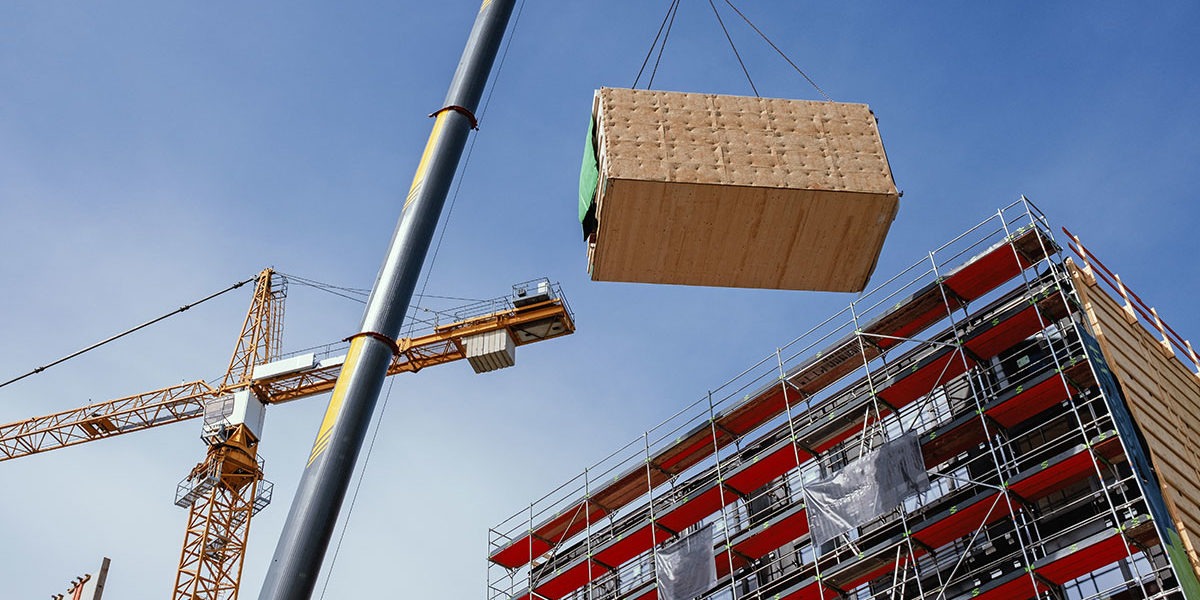Modular construction involves producing standardised components of a building in an off-site factory and then assembling them on-site. It has the potential to improve housing quality, speed up delivery and reduce building costs. So why isn’t everyone doing it?
Effective modular construction requires a procurement strategy that does not necessarily easily align with traditional methods of construction in the UK: early engagement with the supply chain at various tiers, more cost in terms of upfront investing in often novel manufacturing processes alongside sharing of data and collaboration. The theme seems to be that the sector needs to pick-up the pace in terms of being up-to-speed with the technology involved in modular construction, this includes not just employers and suppliers but also other key stakeholders, such as funders and insurers, having the risk-appetite to support modular construction. At the moment organisations looking at utilising modular construction are facing the challenge of finding the resource: time, people and money to adequately de-risk projects to make them a viable procurement route.
How can it make homes more sustainable and energy efficient?
The products utilised in modular construction are often made from sustainable materials, such as timber frame. The technology imbedded in modular construction facilitated by BIM and Digital Twins enables the energy efficiency of modular construction buildings to be more easily controlled, managed and monitored.
What are the sustainability benefits during construction?
Modular construction involves using less material and generating less waste; less time is spent on construction sites; which means reduced vehicle movements (and associated tailpipe emissions); whilst the products themselves can be continually assessed and developed to improve their sustainability credentials.
Is it only feasible on large scale developments?
Currently, the cost-challenges around modular construction are often mitigated by the process generating economies of scale. However, as modular construction becomes more economically viable across the sector this will allow its use on a range of developments. Also, modular construction products do not need to be used on one development, they can be used across smaller sites, but this requires the buyer to have the purchasing power to buy in bulk.
Does modular lead to boring design?
No, not necessarily, the modular construction market already allows for visible customisation with invisible standardisation. As the modular construction market grows and matures, to remain as competitive and attractive to investment as possible, it will no doubt, seek to cater for more range and flexibility around design choice.
If you have any questions about modular construction, or about construction in general, please contact Ruth Griffin.
About the author(s)
Ruth Griffin is a partner specialising in construction and engineering transactional work.

